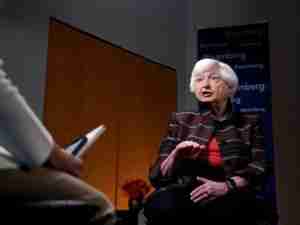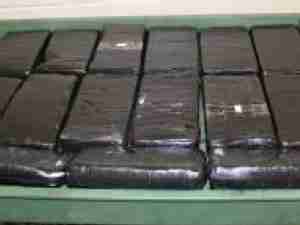Justin Trudeau’s latest mission to bolster Nafta ended on an upbeat note, as the Canadian leader said there’s still a “clear path” to a deal while pushing back against U.S. President Donald Trump.
Trudeau capped a U.S. swing Saturday in Los Angeles after stops in Chicago and San Francisco. During the trip he rejected the belief that trade deals see one country “win” over another—a veiled rebuke of Trump’s more transactional view of trade.
Trudeau’s government has been attempting to win support from U.S. lawmakers and businesses to keep Trump from pulling out of the North American Free Trade Agreement, as he’s repeatedly threatened to do. Canadian efforts also come amid signs U.S. Trade Representative Robert Lighthizer is growing more frustrated with the country.
“There is a clear path forward and we’re working very hard together on that path,” Trudeau said Saturday in Los Angeles. He spoke alongside Mayor Eric Garcetti, one of many prominent Democrats he met with. Canada wants to “ensure that we can move forward in a way that is a win-win for all of us.”
Garcetti hailed Canadian investment in his city and said Trudeau’s trip was well-received. “This is deeply important work the prime minister is doing.”
Not ‘Pushovers’
Trudeau spoke Friday night at the Ronald Reagan Presidential Foundation & Institute, where he hailed Canada-U.S. ties. He recalled meeting Reagan when Trudeau’s own father, Pierre, was Canada’s prime minister. “I’d just received a master’s class in political charisma, and one I like to think kind of stuck,” he said.
Canada has long been able to sort out its differences with the U.S., but “we are not, and have never been, pushovers,” Trudeau said. Nafta talks can be a win-win-win for the two countries and Mexico, he said. “We’ve made progress and it’s vitally important that we build on this progress.”
He identified several tough issues—including Chapter 11 investor-state dispute panels, U.S. proposals for the auto sector, and a U.S. demand for a sunset clause. At the University of Chicago on Feb. 7, Trudeau said he was “legitimately concerned about the future of Nafta.”
“We will not be pushed into accepting any old deal, and no deal might very well be better for Canada than a bad deal,” he said.
Uncertain Impact
Friday in Los Angeles, Trudeau warned he didn’t “think anyone can now entirely predict or understand” the impacts on the three countries if Nafta were to end.
“This accord should and can be modernized and updated, with effort, hard work and willingness to compromise on all sides, this is eminently achievable,” Trudeau said. “If trade between Canada and the U.S. is a bad idea, then there are no good ideas.”
Efforts to modernize Nafta started in August after Trump threatened to withdraw unless changes were made. The sixth round of talks was held in Montreal in January, with the next set scheduled this month in Mexico City. Although Trump had wanted the talks done by the end of 2017, they could now strength into 2019.
Increasingly Frustrated
Many of the core disputes are over U.S. proposals as the country looks to cut its overall trade deficit, and the U.S. looks to be growing increasingly frustrated with Canada. Last week, a Democratic lawmaker emerged from a meeting with Lighthizer saying Trump’s trade chief had floated the idea of concluding talks with Mexico while continuing them with Canada; a Lighthizer spokeswoman later issued a statement saying he was committed to trilateral talks.
Trudeau invoked Reagan’s 1984 campaign slogan—“It’s morning again in America”—in calls to reach a deal to modernize the 1994 trade accord.
“Let’s not step back from the progress our countries have made,” he said. “A generation later, it can be morning in North America. But that is up to us. My friends, let us keep to the task, let us keep applying ourselves with unswerving dedication, with fierce ambition, relentless optimism and unfailing courage. Let us get this good work done.”








